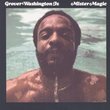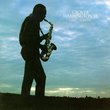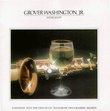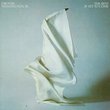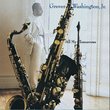| All Artists: Grover Washington Jr Title: Aria Members Wishing: 0 Total Copies: 0 Label: Sony Japan Original Release Date: 1/1/2003 Re-Release Date: 7/11/2003 Album Type: Import Genres: Jazz, Pop, R&B, Classical Styles: Soul, Quiet Storm, Opera & Classical Vocal Number of Discs: 1 SwapaCD Credits: 1 |
Search - Grover Washington Jr :: Aria
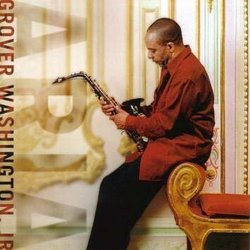 | Grover Washington Jr Aria Genres: Jazz, Pop, R&B, Classical
Before God summoned saxophonist Grover Washington Jr. to Heaven in December 1999, the saxophonist recorded Aria, a magnificent recording that combines the rich operatic tradition of solo vocal performances with instrumenta... more » |
Larger Image |
CD DetailsSynopsis
Amazon.com Before God summoned saxophonist Grover Washington Jr. to Heaven in December 1999, the saxophonist recorded Aria, a magnificent recording that combines the rich operatic tradition of solo vocal performances with instrumental accompaniment and the improvisational vitality and phrasing of jazz. Known as the progenitor of today's contemporary and smooth genres, Washington reveals the full flower of his underrated musicianship on this beautiful and bittersweet CD. He's joined by conductor Robert Freedman--who worked on Wynton Marsalis's Hot House Flowers and The Midnight Blues, and here leads the marvelous Orchestra St. Lukes--and by bassist Ron Carter and the sensitive pianist Billy Childs. They beautifully buoy Washington's impassioned interpretations of the greatest aria "hits," from George Gershwin's Porgy and Bess to Bizet's Les Pecheurs de Perles (The Pearl Fishes), and his trademarked velvet vibrato is heard throughout the saxophone family. His timeless tenor sax sings sweetly on Massenet's "Porquoi Me Reveiller (Why Do You Wake Me?)" and Puccini's "Donna Non Vidi Mai (Never Seen a Woman Like That)." "O Soave Fanciulla (Oh Sweet Lady)," another Puccini gem, is graced by Washington's full-bodied alto tones. His angelic soprano soars on the after-hours version of Giordano's "Amor Ti Vieta (Love Forbids)," which contrasts his broad and rarely heard baritone lines on the Indian impressions of Delibes's "Flower Duet." The famous aria from Puccini's Tosca, "Vissi D' Arte (I Lived for Art)," showcases Washington at his lyrical best, and its title serves as a fitting epitaph for this incredible and sorely missed musician. --Eugene Holley Jr. Similar CDs
|
CD ReviewsThe Ascended Realm Speaks Tzshanna Shelembe | Spring Valley,New York | 01/27/2004 (5 out of 5 stars) "This album inspires the depths of all holy, serene, and sensual emotion to surface. Futhermore, I am a witness to its calming effect on my home and neighborhood. Nothing negative can exist amid these sounds. For romance, try Aria and candle light. Discover new heights and depths in your partner." Simply Amazing Swing King | 01/29/2003 (5 out of 5 stars) "This is an amazing work. It is a unique blend of classical music and jazz, rich in the musical traditions of two worlds. Mr. Washington's phrasing is elegant and often poignant while he moves effortlessly through complex passages. It is a CD that will be listened to again and again." When Jazz met Opera Swing King | Cincinnati, OH USA | 01/14/2007 (5 out of 5 stars) ""Aria" is the last album Grover was to make, unexpectedly dying at the young age of 56 in 1999. The Italian term "aria" is most commonly associated with the opera, and what listeners get here are classical compositions with the saxophone doing the storytelling instead of an opera singer. Such explorations are not uncommon in music today, though the devotion of an entire album to this concept is somewhat unusual. For Grover, the classically trained musician that he was, this kind of jazz fusion album was right up his alley.
Bob Freedman, of the Orchestra of St. Luke's, arranged and composed all of the selections on this album for Washington, Jr., bringing to the project an expert knowledge of the operatic and classical form. Pianist Billy Childs and bassist Ron Carter accompany Grover as ambassadors from the jazz world on this release. The musicality of the members of the orchestra was particularly professional and emotionally evocative on these dates. The sound quality and clarity is unimpeachable on here, and the album overall is a delight to own. " |

 Track Listings (12) - Disc #1
Track Listings (12) - Disc #1